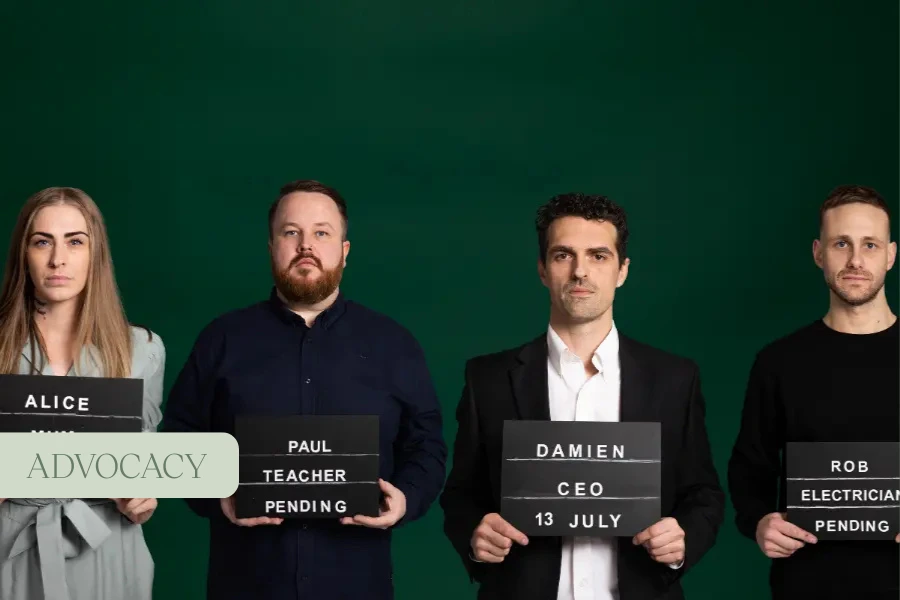On the 27th of November 2024, the Australian Greens Party presented their Bill to Legalise Cannabis to the Senate. Led by David Shoebridge, the Bill proposed legalisation of cannabis for adult-use, not just within a medical framework.
Ultimately, the majority of Senators in the Australian Federal Parliament voted to block the bill: 24 “against”, and 13 “for”.
In what may feel like a standstill in progress to break the stigma around cannabis, we asked Pharmacist and Content Writer Nour for his view and opinion on the future of cannabis legalisation in Australia:
When we speak about cannabis, particularly in the context of legalisation and decriminalisation, there is a habit of clumping cannabis use into one of two categories: either medicinal or recreational. Apparently humanity has devolved into needing to reduce everything down to a binary before we choose to understand it. I reject this classification, we never think of caffeine as either for fun or function, it exists to enjoy and to help. It is both things, and quite frankly, I feel the same about cannabis
“I reject this classification, we never think of caffeine as either for fun or function, it exists to enjoy and to help. It is both things, and quite frankly, I feel the same about cannabis.”
Nour – Pharmacist & Content Writer
Humanity has come a long way in the last century and we now have quite advanced scientific methodologies to help us quantify the potential risks of certain behaviours and substances. As it stands, every metric for drug safety shows cannabis to be safer than alcohol, so logically and scientifically speaking, we should have no problem with it. Yet, it seems some do have a problem with it. Frustratingly, there is still so much controversy and stigma associated with cannabis. And, as seen in the Senate debate this week, our more conservative politicians are more concerned about appeasing their constituents rather than trying to work towards the greater good.
The reality is, cannabis is still subjected to so much political and social discrimination – and it is patients who suffer from this prejudice. In Australia, there are patients awaiting a trial for driving with THC in their system. A trial for a medication that has been prescribed by their doctor. Many of them were not “stoned”, or impaired whilst driving – merely traces of THC lingering in their system because that is the nature of THC. THC can often linger around for a while while having no effect on the individual. In 2022-23 over 7,000 Victorians were charged for presence alone, compared to around 100 charged for impairment. Thus, while it may not seem important to many people, cannabis decriminalisation is in fact a step towards justice.
Cannabis has been used for millennia, in a variety of different ways. It was used medically, spiritually and recreationally with seemingly no issues surrounding this overly exaggerated notion that it may be a harm to society. Part of the reason we do not have the body of research for medicinal cannabis that we have for other medications is because of its illegal status in most countries for the last century. This politically motivated ban has literally been a hindrance to actual scientific research that may have helped a countless number of people with their lives. We have learnt over the years, and particularly from the example of prohibition of alcohol in the USA, that criminalising substances does not always solve problems of drug abuse. Here in Australia, the Australian Capital Territory, where limited cannabis decriminalisation was implemented in January 2020,a review in August 2024 showed these reforms have nearly eliminated cannabis-related offences in the ACT. In many scenarios, like that of cannabis, regulation may in fact have better outcomes for our society as a whole. Even from a state-centric perspective, regulation means reducing the impact of illegal markets while allowing everyone to benefit from legal trade and taxation.
Current governments in Australia have been quick to respond to anything they deem too difficult by just banning it. We have the wildly controversial ban on vapes, even when cigarettes are still readily available and now there are talks of the government considering a ban on social media for children. What I see here are lazy lawmakers, who want simple solutions but have no vested interest in putting in work for the future. Society changes and new challenges arise, and just sweeping them under the rug does not make them disappear. So whether cannabis is medicinal or otherwise, is irrelevant. It is a plant, grown in the ground for thousands of years, and has always been around – restricting it has done nothing but drive people back to the black market. So, the real problem here is poor policy making.
Cannabis exists, and always has, and what we need is a movement to embrace it and facilitate it safely for people who need it, and people who want it. Life is not easy for many of us, but there are a variety of things the universe provides to us to help us get through and for many people, cannabis just happens to be one of them.
Good and bad, are relative terms and are ever-changing. When faced with new challenges regarding these perceived moral questions, we as a people and as governments need to analyse scientifically and empirically the harms and benefits they pose and approach them with an open mind.
When confronting the unknown we often respond from a place of fear. But, at some point we collectively (paraphrasing Louisa May Alcott) have to stop being afraid of storms – we must unite and learn how to sail the ship. Let’s legalise cannabis, once and for all.
